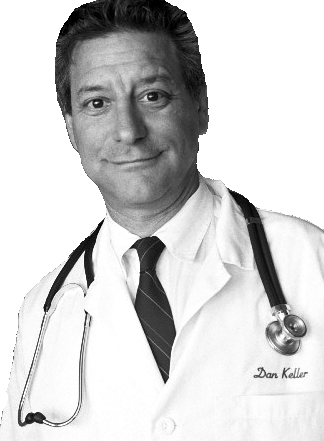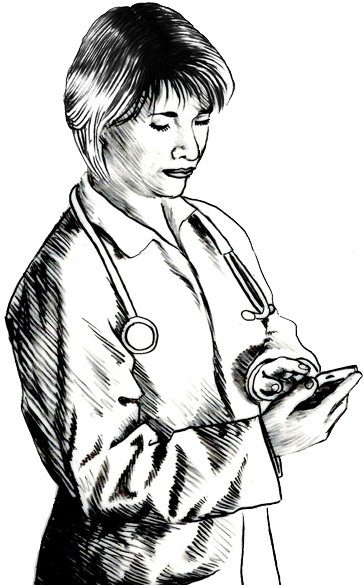 What's Hard about Nursing
What's Hard about Nursing
 What's Hard about Nursing
What's Hard about Nursing
|
Seven Things...
Here's the backstory. |
|

A New Nurse
In my previous career I was a computer programmer. Then I went to nursing school, got a BSN (cum laude) and passed the NCLEX. As an RN, I returned to programming to work on information-related tasks of nursing. Nursing is hard work, both physically and mentally. (Here is the recent writing of another nurse who agrees.) It imposes a substantial cognitive load -- much data, many details to remember, and often-overlooked opportunities to optimize -- compounded by frequent interruptions and rapidly-changing demands. I am convinced that we can make it less stressful and less error-prone with some help from technology. 
With a business partner, I developed software to support the memory burden on nurses working their shifts. NurseMind is our solution. It is a commercial product. It runs on the popular Apple iPhone, iPad, and iPod Touch with support from a database backend and a web server. But I'm getting ahead of myself. First, here are some thoughts about nursing and why it's such a hard job. Many of the physical tasks of nursing such as starting an IV or inserting a catheter demand a high level of skill and nursing schools teach them well. However, the mental side of the job—also highly skilled—gets no attention. Each nurse must figure out for him- or herself how to:
Surely every nurse grapples with this issue. I brought it up with my adviser. Lamely, she suggested keeping a list on a piece of paper in my pocket. That's it??? I also asked the teacher who was the supervisor of one of my clinical rotations. She said we just had to learn to keep it all in our heads. Certainly, things can be done the hard way. Thousands of nurses do it every day. How much of our mental energy is consumed by remembering details and keeping track of routines? How much better we could be doing our jobs by devoting our minds fully to our high level activities, especially those demanding clinical skill and those involving actual patient care! In the literature, this is described as nursing presence and the care we give is vastly better when we have it. How many fewer details would be forgotten! This is not just a job aid, it is a real quality issue. |
|
|
I've Got a Little List *
This notion of the value of lists is not mine alone. Recently, the New York Times and others have praised A Basic Hospital To-Do List [that] Saves Lives. Dr. Pronovost at Johns Hopkins is revolutionizing the quality of care and vastly reducing errors by the simple introduction of checklists. In the jargon of healthcare, a checklist is a simplified protocol, a precise description of a routine medical procedure. (Wikipedia describes protocols as Medical guidelines.) The idea of protocols for standard procedures is not new, but it's formal and not easily applied on the fly and when juggling a multiplicity of patients and activities.
To someone on the outside, [to-do lists] may seem like a no-brainer. But in the crush of crisis medicine, one or more... steps is often neglected, sometimes with disastrous results. It is evident the need is present not only in crisis medicine but also in daily, routine care. In Using Technology to Improve Patient Care (Sipe et al, Nursing Outlook 51(3), 2003), the authors observe that, "...the nurse is challenged to manage a to-do list with pen and paper." Yet they name no alternatives, merely hinting that technology may offer a solution. With NurseMind this need begins to be satisfied. Another excellent article -- more in-depth -- in the New Yorker, The Checklist by Dr. Atul Gawande (the sub-header asks If something so simple can transform intensive care, what else can it do?) says: We have the means to make some of the most complex and dangerous work we do -- in surgery, emergency care, and I.C.U. medicine -- more effective than we ever thought possible. But the prospect pushes against the traditional culture of medicine, with its central belief that in situations of high risk and complexity what you want is a kind of expert audacity... Checklists and standard operating procedures feel like exactly the opposite, and that's what rankles many people. Nurses included. But even the seasoned professional who has "paid her dues" will be helped by a pocket tool that replaces that wad of paper she calls her "brain" that every nurse carries. (For examples, please visit my brain museum.) She can get help remembering and prioritizing the myriad tasks demanding her attention. She can benefit from the seconds it pares from notating and recalling the myriad bits of data for which she is responsible. For newer nurses the task list will be the most valuable feature. For the old-timers the note-taking features will be most appreciated. For both, it's a long-overdue tool that provides much-appreciated help for the mental part of nursing work. So what is the mental part of nursing work? To answer this question, I thought a lot about my own experience on my clinical rotations, and talked to a lot of nurses. The best hints came from looking at what they write on their brains. These are four types of things:
In a January 5, 2010 story on National Public Radio -- Atul Gawande's 'Checklist' for Surgery Success -- Dr. Gawande observes that experienced practitioners are at first resistant to using checklists: "You can imagine the response" to the idea of running through a checklist before surgery, Gawande says. When his team surveyed the doctors who used the checklist, "There was about 80 percent who thought that this was something they wanted to continue to use. But 20 percent remained strongly against it. They said, 'This is a waste of my time, I don't think it makes any difference.' And then we asked them, 'If you were to have an operation, would you want the checklist?' Ninety-four percent wanted the checklist."The trend is undeniable. USA Today on January 27, 2010, in an article entitled Top surgeon Atul Gawande urges doctors to use 'The Checklist' touts Gawande's new book, The Checklist Manifesto (Metropolitan Books, $24.50) and says, ...medicine today is so complex that even the sharpest doctors can no longer keep everything they need to know in their heads.Of course, the same is true for nurses. We are not superheroes; we need help, too. Lists like these really work. Word is getting out. NurseMind's time has come. * With apologies to Gilbert and Sullivan |
|
Follow-up
Dan's Health Policy and Healthcare Technology Site
Nurse Tech, Inc. © 2010
Updated Wednesday, 02-Nov-2022 12:33:34 MDT